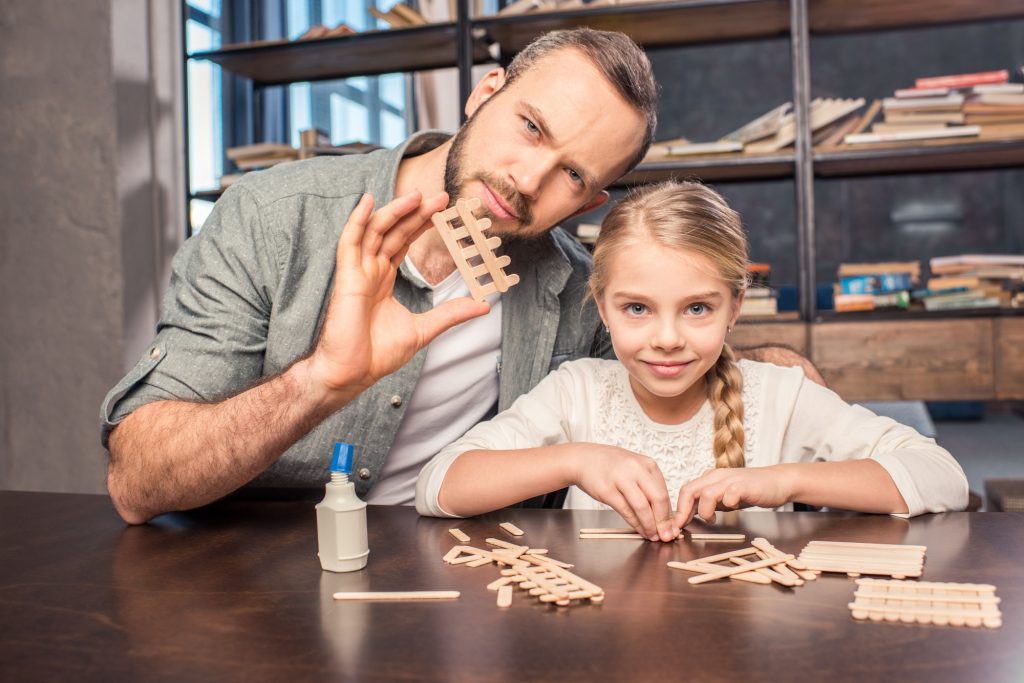Building unbreakable bonds with your children is a rewarding experience for any parent. This emotional connection creates trust and security, influencing their emotional and social growth.
This article explores the key reasons for nurturing these relationships, the benefits they bring, and practical tips to strengthen your bond. It also discusses common challenges parents may face and offers solutions to repair strained connections through effective communication and trust-building exercises.
Learn how to create lasting memories and build a resilient relationship with your children through shared experiences and quality time.
Table of Contents
Why is Building a Bond with Your Children Important?
Building a bond with your children is important for their emotional and social development, as it creates the basis for relationships built on trust, open communication, and mutual respect.
A strong emotional connection boosts their self-esteem, encourages independence, and fosters a sense of security in the family.
When parents actively work on nurturing these bonds, they teach family values like unconditional love, mutual respect, and empathy, which are crucial for healthy relationships throughout their lives.
What are the Benefits of Having a Strong Bond with Your Children?
Building a strong relationship with your children brings many benefits that support their well-being and growth. These include better emotional intelligence, enhanced problem-solving skills, and effective communication abilities driven by mutual trust and understanding.
Spending quality time together and participating in bonding activities creates a base of emotional support and encouragement. This nurturing environment helps instill values and traditions that can be passed down through generations, fostering a sense of family loyalty and shared responsibilities.
How to Build a Strong Bond with Your Children?
Developing a strong bond with your children requires purposeful effort and a focus on meaningful interactions. This includes spending quality time together through family activities, promoting open communication, and serving as a positive role model, demonstrating values such as kindness and honesty.
By incorporating trust-building exercises and activities like family game nights, storytelling, and play, you create chances for emotional connection and shared experiences that strengthen your relationship and understanding of each other.
1. Spend Quality Time Together
Spending quality time with your children strengthens your bond through shared experiences and memorable bonding moments. Family activities such as outdoor adventures, game nights, or cooking together build a sense of belonging and encourage open dialogue, trust, and understanding.
Simple routines like reading bedtime stories or sharing a daily highlight during dinner create a comforting environment and foster positive interactions. Activities like nature walks, crafts, or board games bring families closer, teach teamwork, cooperation, and the importance of shared responsibilities.
Consistently engaging in these practices enhances emotional security and helps develop important life skills, such as self-regulation and problem-solving. Being present during these moments ensures genuine communication, leading to deeper relationships and lasting memories built on trust and affection.
2. Communicate Effectively
Effective communication is crucial for building a strong bond with your children, as it encourages understanding, respect, and emotional safety. Practicing active listening and encouraging open dialogue allow children to share their thoughts and feelings, helping them develop emotional awareness and a sense of security.
Using different communication styles, such as noticing non-verbal cues and adjusting your tone, can improve interactions with your children. It’s important to be patient during conversations, demonstrating vulnerability and giving children time to express their ideas without feeling rushed.
Showing empathy by recognizing and validating their emotions can strengthen the emotional connection, foster trust, and create a supportive environment where children feel safe and understood.
These techniques enhance the parent-child relationship and help children develop important skills for understanding and managing their emotions, ultimately contributing to their emotional intelligence and resilience.
3. Show Empathy and Understanding
Showing empathy and understanding is essential for building an emotional connection with your children, helping them feel valued and heard. By responding to their feelings with kindness, support, and affection, you create a foundation for resolving conflicts effectively and building mutual respect in your relationship.
Empathy in parenting not only helps children feel secure but also teaches them how to understand and manage their own emotions. For example, when a child is upset after losing a game, acknowledging their feelings and validating their disappointment can make a big difference. Instead of dismissing their sadness, a caring parent might say, ‘I see you worked hard, and losing feels tough.’
This approach creates a safe environment where children learn to express their feelings openly. During frustrating moments, like homework struggles, providing support, patience, and encouragement instead of criticism can strengthen their emotional resilience and encourage healthy communication.
4. Be a Positive Role Model
Being a positive role model is important in shaping your children’s values and behaviors, as they often imitate what they observe. By acting with integrity, trustworthiness, and authenticity, you teach key family values and emotional intelligence that help them face life’s challenges.
Showing resilience during tough times teaches them that setbacks are temporary and can be overcome with effort and perseverance. Being involved as a parent, such as by listening actively, promoting open conversations, and offering guidance, creates a safe environment where children feel appreciated and understood.
Promoting kindness, empathy, and respectfulness within the family helps parents nurture social skills, which aids children in forming healthy relationships and equips them to handle personal and social challenges throughout their lives.
5. Create Special Traditions and Memories
Creating special traditions and memories strengthens your bond with your children and provides lasting moments to cherish. Participating in activities like storytelling, family outings, or unique rituals encourages meaningful interactions that foster a sense of belonging, shared identity, and family dynamics.
These experiences often become treasured family stories passed down through generations, reinforcing family values, a sense of legacy, and the importance of shared interests.
For example, regular game nights can bring laughter, teamwork, and playfulness to your home, while holiday traditions allow families to celebrate their heritage and foster gratitude and appreciation for one another.
Whether preparing a favorite meal together or volunteering as a family, these activities not only build emotional connections but also teach important life lessons about kindness, responsibility, teamwork, and community.
What are the Common Mistakes Parents Make in Building a Bond with Their Children?
Parents often encounter difficulties when trying to build strong relationships with their children. Common mistakes that can hinder bonding and attachment include:
- Inconsistent communication
- Not spending quality time together
- Being emotionally unavailable
Recognizing these issues is the first step toward fostering a deeper connection built on trust, understanding, and emotional safety.
How to Maintain a Strong Bond with Your Children as They Grow Up?
As children grow, keeping a strong bond with them requires flexibility, openness to feedback, and consistent effort. This means staying in communication, respecting their independence, and offering emotional support as they face new experiences and challenges.
By sharing interests and staying involved in their lives, you can maintain a strong bond through different stages of development.
1. Continue to Communicate and Spend Time Together
Staying connected and spending quality time with your children is crucial as they grow. Focus on meaningful interactions, actively listen, and join in activities that everyone enjoys to provide emotional support, encouragement, and strengthen your bond.
Consider setting up regular family nights to relax and share experiences. Whether it’s a movie marathon, cooking a meal together, or visiting a local park, these bonding moments are valuable and promote family involvement.
Encourage open discussions about daily events to allow everyone to share their thoughts and feelings, promoting openness and honesty. Joining in hobbies like gardening or crafting together can also build teamwork and understanding.
The key is to find connection opportunities that resonate with each family member, strengthening your relationships and nurturing family dynamics.
2. Respect Their Independence and Individuality
Respecting your children’s independence and individuality is key to building mutual respect in your relationship. Allowing them to explore interests and make decisions supports their growth while keeping you as a source of guidance and mentorship.
Balancing support and independence becomes more important as children develop through different stages. Parenting requires adaptability; as children grow, their needs change, demanding a more tailored approach. Recognize that each child is unique, with their own personality, experiences, and vulnerabilities that shape their perspective.
Creating an environment where children feel valued and heard helps build their confidence, self-esteem, and resilience. This approach enables them to make choices while still appreciating their parents’ wisdom, insight, and guidance.
3. Be Supportive and Encouraging
Being supportive and encouraging is crucial for maintaining a strong relationship with your children as they encounter new challenges. Offering positive reinforcement helps them build self-esteem and confidence, knowing they have your constant support and guidance.
This encouragement greatly influences their social and cognitive growth, setting the stage for healthy future relationships. Engaging in their interests, celebrating their achievements, and guiding them through tough times creates a nurturing environment where children feel safe expressing themselves, fostering emotional connection and trust.
Parental involvement reinforces a child’s sense of belonging and teaches them about perseverance, empathy, and emotional intelligence. As they deal with life’s challenges, the support and guidance they receive helps them face difficulties, fostering independence, self-worth, and resilience that lasts throughout their lives.
4. Adapt to Their Changing Needs and Interests
Adjusting to your children’s changing needs and interests is key to maintaining a strong relationship as they grow. Being flexible and attentive to their developing personalities helps build an emotional connection, promoting mutual growth, shared interests, and family dynamics.
Recognizing these changes shows genuine care and encourages children to express themselves, knowing their feelings and passions matter. This flexibility fosters open communication and emotional safety, which is important as they face new experiences and challenges, like changes in school or social situations.
Being aware of these shifts can enrich family interactions, turning shared activities into opportunities for joy and learning. Ultimately, embracing these changes strengthens the foundational relationship between parents and children, creating a lasting bond based on trust, understanding, openness, and unconditional love.
What to Do if You Have Strained or Broken Bonds with Your Children?
If your relationship with your children is strained or broken, it’s important to work towards reconciliation and healing. Start by opening lines of communication, offering emotional support, and engaging in trust-building activities that reinforce family values and connection.
These steps can help rebuild your connection and foster mutual growth, understanding, and empathy.
1. Acknowledge and Take Responsibility for Your Actions
Admitting and taking responsibility for your actions is key to mending strained relationships with your children. By acknowledging mistakes and being emotionally available, you create a trusting, respectful, and supportive environment that encourages healing.
When parents recognize their faults, it opens up opportunities for meaningful dialogue and emotional connection. For example, instead of ignoring a child’s feelings after a disagreement, saying, “I’m sorry for losing my temper” can effectively acknowledge their emotions and encourage openness.
This kind of communication not only validates a child’s feelings but also models accountability and respect, teaching them the importance of taking responsibility for their actions.
Over time, this openness can lead to stronger connections where children feel comfortable sharing their thoughts and concerns, ultimately strengthening the parent-child relationship through trust and emotional safety.
2. Communicate and Listen to Your Children’s Perspective
Effective communication with your children involves not just talking but also actively listening to their perspective, which is crucial for repairing strained relationships. By showing empathy, understanding, and respect for their feelings, you create opportunities for emotional connection and conflict resolution.
This approach creates an environment where children feel safe to express themselves, knowing their thoughts and emotions are valued. Parents can improve this process by maintaining eye contact, using nonverbal signals, and summarizing what their child has said to show they are actively listening and paying attention.
Encouraging conversations instead of interrogations helps build trust and respect, making children more comfortable discussing their concerns. By sharing relatable experiences, adults can demonstrate vulnerability, encouraging children to do the same and fostering deeper emotional connections.
This mutual understanding is key to building a strong bond, leading to healthier and more resilient relationships that are based on trust, communication, and emotional support.
3. Seek Professional Help if Needed
If your relationship with your children remains difficult despite your efforts, seeking professional help might offer the guidance and support needed for improvement. A counselor or therapist can provide insights, strategies, and support for rebuilding trust and creating a healthier relationship.
Working with a professional allows families to uncover issues that might not be obvious and encourages open communication, understanding, and cooperation among family members.
Counseling offers a safe environment to express feelings and thoughts, which is especially important when emotions are intense. A trained counselor’s expertise can lead to healthier interactions, helping family members handle conflicts with empathy, respect, and emotional intelligence.
Seeking help is not a sign of failure; it shows a dedication to developing lasting relationships built on mutual understanding, support, and respect.
Frequently Asked Questions
How can I build unbreakable bonds with my children?
Building unbreakable bonds with your children starts with open communication, spending quality time together, and showing unconditional love, support, and involvement.
What are some ways to strengthen the bond with my child?
Some ways to strengthen the bond with your child include engaging in activities they enjoy, listening actively, participating in shared experiences, and showing genuine interest in their lives.
Why is it important to have a strong bond with my child?
A strong bond with your child can lead to a healthier and happier relationship, improved communication, and a sense of security, trust, and emotional safety for both you and your child.
How can I communicate effectively with my child to build a stronger bond?
To communicate effectively with your child, it’s important to listen actively, validate their feelings, and use positive reinforcement instead of criticism or punishment. This promotes trustworthiness and respectfulness.
What role does quality time play in building unbreakable bonds with my children?
Quality time allows you to establish a deeper connection with your child, create lasting memories, and engage in bonding moments. It also shows them that they are a priority in your life.
What can I do if my child and I have a strained relationship?
If you and your child have a strained relationship, it’s important to address any underlying issues and work towards rebuilding trust, understanding, and emotional connection. Seeking professional help or counseling may also be beneficial in navigating family dynamics and emotional support.







